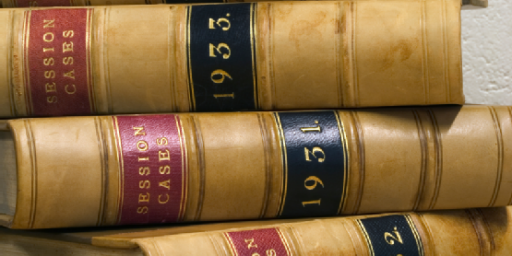Jefferson Seeks to Block Warrant Release
U.S. Rep. William Jefferson is trying to block the release of the FBI search warrant looking into bribery allegations.
U.S. Rep. William Jefferson filed a motion Thursday to block the release of an FBI search warrant expected to provide details into Jefferson’s bribery probe. U.S. Magistrate Judge William Connelly on Monday had given Jefferson, D-New Orleans, and his representatives a week to file an appeal of Connelly’s order to unseal the information.
Jefferson’s attorney argued that release of the documents would taint Jefferson for life, even if a grand jury declines to indict him. The 16-year congressman is the subject of a federal criminal probe, allegedly for demanding cash and other favors for himself and his family in return for using his power to arrange African telecommunications deals.
Jefferson, 59, has not been charged and has repeatedly denied any wrongdoing. Jefferson’s office referred all calls Thursday to his attorney, Robert Trout, who did not return a call.
Jefferson has a point. The question, it seems to me, is what the usual procedure is. If federal search warrants are traditionally private until indictment, his should be as well; if they are considered public record, his should be released. A quick Google search indicates that they are matters of public record in many (most? all?) states and that, for example, Rush Limbaugh’s was released.
Update: There is some consensus that the Freedom of Information Act (FOIA) requires the release of this information as well.
For example, the Vermont Supreme Court ruled that search warrants and related documents are court records subject to public inspection. The court described related documents “upon which a court bases a decision to issue a search warrant” as supporting affidavits and inventories of items seized.
(In re Sealed Documents, March 23, 2001.) The court noted that the public and press have a presumptive right of access to court records under Vermont law and cannot be denied access unless disclosure would pose a substantial threat to law-enforcement efforts, or to individual safety or privacy.
Ohio’s highest state court ruled that the sheriff may not redact — or edit — a police incident report to shield the name of the police officer who shot a civilian to death. (Beacon Journal Publishing Co. v. Maurer, February 14, 2001.) The court observed that incident reports, like 911 phone calls, “initiate the criminal investigation; they are not part of it,” and both are public records under Ohio law. This is true even if the incident report identifies an uncharged suspect, the court added: “Once clothed with the public-records cloak, the records cannot be defrocked of their status.” Because the statements concerning the police officer were incorporated into the incident report, they became part of the public record that must be disclosed in unredacted form.
Whether this is a good thing is another matter entirely. There’s a good argument to be made that the privacy of those merely under investigation (think: Richard Jewell) deserve some reasonable level of privacy.





